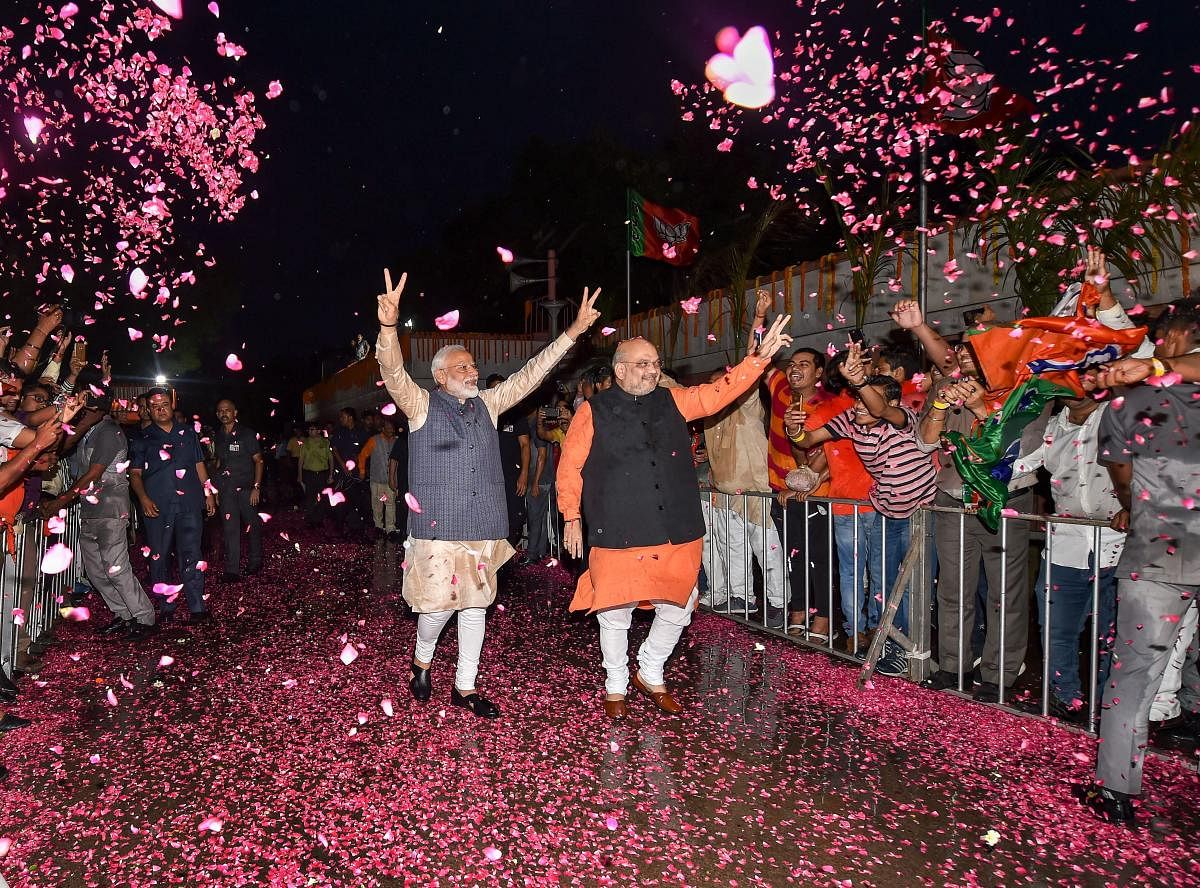
We are a democracy and we swear by the principle of majority or the finality of numbers. The question still remains, for those who think deeper, whether this majority decision is necessarily right. We are so conditioned to think that it is so that we do not go any further. Some may even think it’s outrageous to do so. Truth is, nobody wants to speak about it because it is likely to be considered sacrilege.
If we observe the reports, discussions on television, articles in the media, etc., we find nearly all of them endorsing the dogma. They find everything right with the winners and everything wrong with the losers. Those things they hailed as the strong points of the losers suddenly become their Achilles’ heel. All the deficiencies they were discussing about the winners now become their advantages. This opportunism on the part of the media is amusing, hypocritical and sycophantic.
Media pundits have taken a U-turn and have started seeing everything right with the winning combine. There are noble exceptions, of course. They are bold enough to raise some inconvenient questions about the conduct of elections in general; in particular, its credibility. We owe a great deal to them!
What justifies majority monopoly in decision-making in democracies? That the majority is more likely to be right? “Democracy is two wolves and a lamb voting on what to have for lunch.” This saying, whose origin is uncertain, has the merit of illustrating the limits of majority rule — and of an understanding of democracy reduced to the power of the most numerous. It also vividly expresses the fundamental concern of the founding fathers of modern democracies, namely the risk that a sufficiently broad interest-group might form a majority and dominate the minority, depriving it of its rights, its freedoms.
In this scenario, democratic regimes are potentially no less tyrannical than authoritarian ones; the tyranny of the many simply replaces the tyranny of the one or the few. In the absence of limits to the power of the masses or of appropriate voting ethics — in the words of Benjamin Constant this time — the “prerogative of the majority is that of the strongest. It is unjust.”
Henrik Ibsen’s play An Enemy of the People has a very telling example of this situation. Dr Stockmann has sufficient scientific evidence to prove that the Norwegian city’s public baths are contaminated, and therefore dangerous, but he is outnumbered by vested interests, including his own brother who is the mayor, and even the media. In utter frustration, he damns the tyranny of the majority for stifling truth and justice. He concludes that the majority can be terribly wrong, too.
The validity of the majority depends solely on the processes that lead to decision-making on the part of the electorate. Can we say that they are sufficiently informed to make the decisions they finally translate into votes? If the electorate is educated and can take informed decisions, we can reasonably conclude that their decisions are valid.
But then, there are many extraneous considerations. Though caste and community should not be used to lure or influence the voters, as per law, this code is often breached with impunity. It’s very easy to manipulate voters using the caste or community card. Most political parties resort to it, vitiating democratic government formation and decision-making.
Money and muscle power also play their role rather blatantly in our electoral politics. Criminals have infiltrated politics in a big way, and no political party is blameless in this regard. This is the most deplorable influence of all.
Black money finds no better channel than elections to splurge it on — with remarkable returns. Most winning candidates have tons of ill-gotten money. They spend several crores to win an election. Would they spend hard-earned money to do it? Are they insane to do social service, throwing away their own hard-earned money for it? ‘Honest politician’ is an oxymoron today. When the entire democratic process is vitiated in this manner, do we still consider the majority as infallible?
The very idea of ‘majority’ is an artifact. It doesn’t exist in reality. The winning party rarely secures a majority of the votes polled, much less the support of the majority of the total voters. The norm of majority is invoked only to legitimise what is necessarily the rule by a handful of individuals. A majority of people have nothing to do with governance. This problem becomes acute in societies where the masses are illiterate and socially and economically depressed.
Over and above all this, there is the problem that a deserving candidate loses to an undeserving one. What does this prove? How does this happen? We need to
search for answers to these questions. In this scenario, the only unblemished category is the ‘innocent’ citizen, who votes without any selfish interests. They are fast becoming an endangered species.
We still gloat about being the largest democracy in the world. There cannot be a more absurd claim than this. Where are we heading to? Ironically, the pride in numbers is not matched by any constructive effort to harness the demographic dividend by developing and empowering the people.
Unless we cleanse this entire process and have an educated and upright citizenry, we shall never have a truly democratic polity, or the rule of law, where every citizen is assured of his/her legitimate right to life and property, and all fundamental rights inviolable. An egalitarian and just society is the very hallmark of a vibrant democracy. In that society everyone is assured of justice and peace. This is still a mirage for the vast majority of the people in our country. They need liberation from illiteracy, corruption and poverty. We are still a far cry from such a democracy, which our politicians promise each election.
(The writer is Director, Little Rock Indian School, Brahmavara, Udupi)